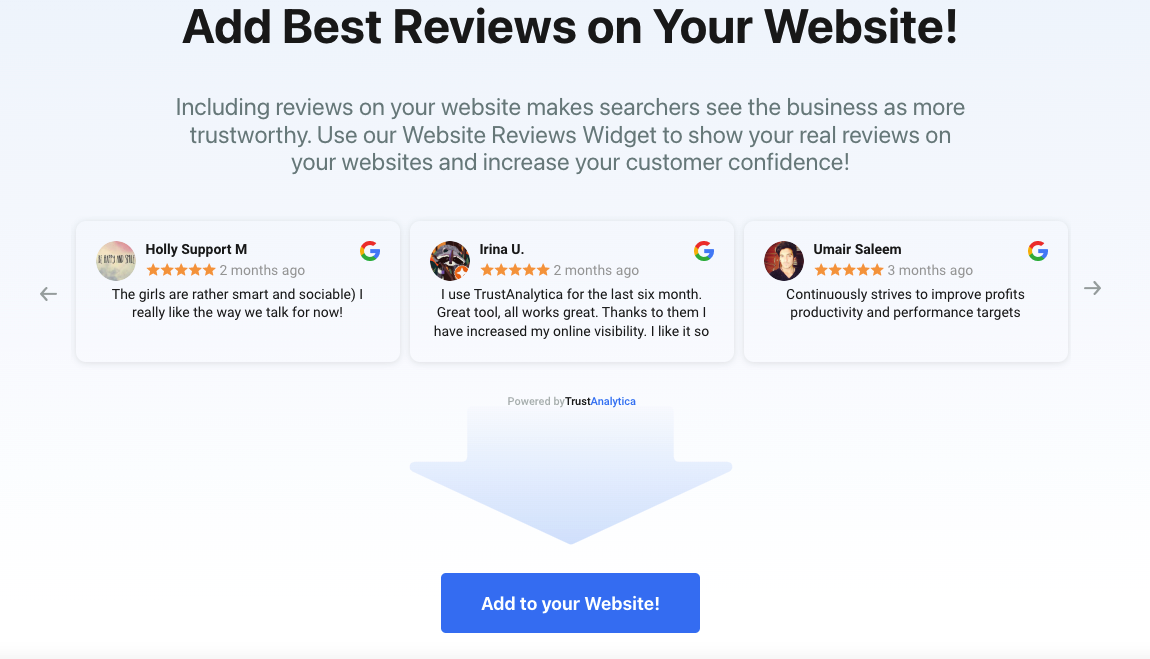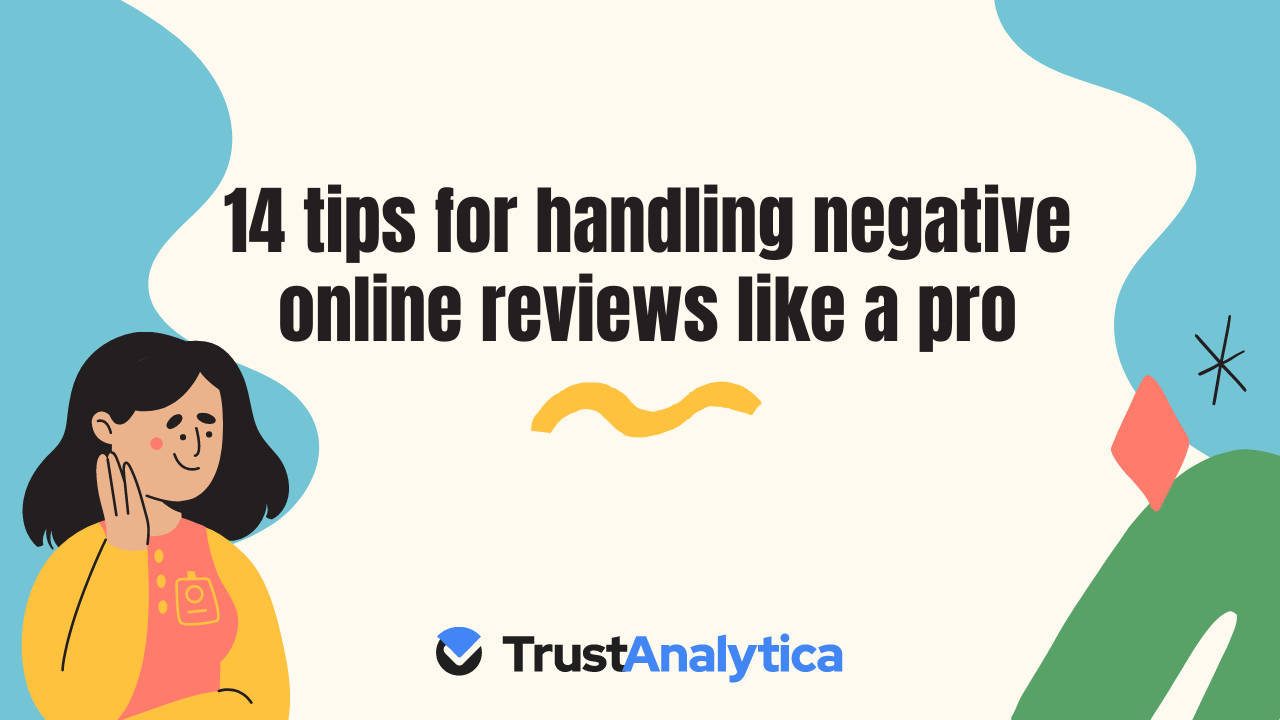A brand’s presence on the internet opens ways for users to interact with it, be it a short social media post or a lengthy copy of a newly launched product or service. The way online users, both customers, and prospects, perceive a brand and then spread the word around ultimately becomes the online reputation currency […]

A brand’s presence on the internet opens ways for users to interact with it, be it a short social media post or a lengthy copy of a newly launched product or service. The way online users, both customers, and prospects, perceive a brand and then spread the word around ultimately becomes the online reputation currency for that brand.
The internet has drastically changed the rationality and morality around conducting businesses and lead generation. The days of media and advertisement galore are gone. Today, peer-generated content and word of mouth are the real deal.
When we talk about brand reputation management, it is about a process of constantly monitoring and intercepting online sentiment surrounding the brand and responding to it accordingly.
Based on a different process, from data gathering to processing and then churning out relevant content, it takes both artificial and human intelligence to cover diverse avenues. Much of the work in terms of collection and processing is done by specialized software that is overseen by human professionals.
The goal is to ensure that the majority of sentiment surrounding a brand is positive and appealing to prospects and potential customers.
Before moving forward, keep in mind that every online brand needs reputation management. Also, there are a lot of differences between creating an online reputation and sustaining and maintaining one.
It takes time and effort to come up with the right strategy and then apply it while fine-tuning it according to the needs of the hour. Ultimately, the brand should be safe from isolated negative coverage as well concerted attacks from smear campaigns.
In this light, here are some benefits of solid brand reputation maintenance that you can achieve.
Companies hardly enjoy a monopolistic environment and are always at dagger’s drawn with competitors. This is a fact and no brand operating in a competitive market can deny that. Since it is hard to alter external factors, brands can set strategies and goals based on the competition they face.
For instance, a brand just found out that its biggest competitor has dropped prices and even offered free home delivery. This is a wide net strategy to lure in more customers.
In response, our brand can take steps in two directions:
In both cases, a reputation maintenance strategy helps a brand to respond timely.
Apart from sales and financial gains, there are indirect gains that a brand can materialize through reputation management – devoted employees.
First, aspirants always prefer a work environment where they are paid well and appreciated for their efforts. Second, they enjoy their stay and become free promoters and brand ambassadors for the brand.
When prospects and potential customers listen to stories and anecdotes from employees, they understand that the “inside” information is indeed true and the brand is worth the money they intend to spend.
Just like rearing and retaining talented employees, brands can benefit a lot from new customers by turning them into permanent ones.

It starts with solid engagement and enticing them to try the product or service by the brand for the first time. Once they have tested that, it is time to move in and secure their feedback.
At every step of the process, brands can rely on solid reputation management practices to highlight their virtues and remove any negative sentiment lurking in the shadows of the virtual world. In some form or another, this practice is followed by both small brands and mega brands.
Now that we have taken a hard look at the benefits, it is time to set the machinery in a way that your brand can reap all of the benefits and none of the consequences that may come as the cost of doing business online.
For that, we have assorted some of the best and professional tips to maintain an online brand reputation with ease. This will be helpful for brands that do not have extensive reach and scope already.
This is simply a no-brainer but let us put it out now: you cannot maintain a thing until you have created it. This is especially true in the case of online reputation. The strategies for creating and maintaining an online reputation are different. To reap the benefits of the efforts, it is best to put the right foot forward.
Startups and brands that are just making their mark in the online world need to work on making their identity first.
This starts with cohesive visual clues and language that can be identified by users with ease. Also, a well-defined mission statement and values put a brand better and bolder on the virtual map.
Brands, whether they are individuals or businesses, need a place to start and establish their online presence. When it comes to businesses, the best place to grow is a well-optimized website that people can turn to for authentic and latest information on products and services.
Whereas for individuals, social media platforms, such as Instagram, Facebook, and LinkedIn, are much better places to take off their online identity. Once it is established, they can add support structures such as an official website, dedicated applications, and so on.
Not everything is owned by brands when it comes to online reputation management, and herein lies the catch.
Instead, we have community-based channels and other independent avenues where people post reviews by trying products and services. When prospects look at the reviews, it makes or breaks the brand for them.
As a brand that seeks maintenance for its online reputation, it is best to be active on these platforms, such as Yelp, Google My Business, TripAdvisor, and so on, and ask for reviews actively and then respond to them.
Of course, the whole idea of having dedicated reputation maintenance and creation strategy is to control, or at least mold, what people are saying about your brand. But, it should not mean that you ignore the honest voices out there.
This is where brands can get creative and even add their twist. To collect honest opinions, they can create surveys and forms to engage customers and get their input.
Now, your brand can use the collected data in two ways. First, they can showcase positive sentiment on different media to gain and retain clients. For the negative aspects, you can work on them and improve them.
In this day and age, conducting business in the online sphere is about providing a fulfilling experience to the clients, from product selection to payment and more.
Brands need to start with a holistic approach and keep clients’ convenience and ease in mind to design everything around them.
This is essential because if customers have a bad experience with your brand, the dominoes effect comes into action. It starts with severing ties with the brand. Then, they post public reviews that bring more scrutiny from other users.
Before you can fathom the depth of the matter, everything is out of place.
Another way of securing and retaining clients through a solid online reputation is by promoting lively company culture. As mentioned in the earlier sections, buyers are now more interested in brands’ internal operations, including how they are treating their employees, where they are procuring their raw materials, and so on.
While reviews and feedback from users are a big factor in maintaining an online reputation for a brand, getting positive feedback from employees, both directly and indirectly can get your brand further in the race.
Content is everywhere on the internet and almost 90% of it is indistinguishable at the outset. As a brand that wants to establish and sustain an online reputation, it is necessary to come up with a unique style of creating content and then augment it with recurring elements.
For instance, you can always identify and recognize content from megabrands that spend a lot of resources on honing a style guide. From using the same font size and style to infographics and beyond, everything helps the brand to leave its mark on the minds of prospects.
After going through all the other steps and dynamics, you can make the case that the whole task of either creating or maintaining a brand’s online reputation is not a one-man show. To cover all the bases, you need to get a PR team or a well-oiled autonomous plan in motion.
With a dedicated team from a professional reputation management company, your brand can enjoy persistent exposure and support in the online world. In addition to this, a PR team can also help you with covering both local and public news.
It is not easy to determine the ultimate cost of maintaining a brand’s online reputation. Whichever company you approach, they are going to take the initial look at the current situation and then keep in mind your needs and goals regarding the future. Based on these two crucial metrics, any brand reputation management company can give an estimate.

For reference, a brand of considerable size should expect to pay at least $500 a month to a company that employs both artificial and human intelligence to monitor and mold online chatter surrounding a company or an influential individual.
Here are some steps to implement if companies want to repair their online reputation:
Following are some simple steps to get started:
These are the best online reputation management techniques:
A simple way to measure a brand’s worth is by googling its name and studying the top search results. If the overall sentiment is positive, then the brand is in green in terms of online reputation worth.
Here is the rundown to reclaim the glory:
During the building phase, brands need to employ the funnel policy where they start wide and big and then narrow down to connect with prospects and potential customers. Whereas established brands need to keep in mind both internal and external factors to maintain and improve their online reputation.
Maintaining an online reputation for a brand requires constant work. If a brand owner wants to leave things as they are because he believes that his brand does not need a positive lift, it will soon become obsolete and leave a vacuum in the market that will be filled by other players.
It is a need for every brand to have a solid reputation management strategy in place. We have highlighted the importance and benefits of maintaining ORM along with professional tips to get started.
We hope that they will pave the way for brands and managers to make well-educated plans that are bound for success.
 14 Proven Working Tips to Handle Negative Reviews & Feedback
14 Proven Working Tips to Handle Negative Reviews & Feedback 
